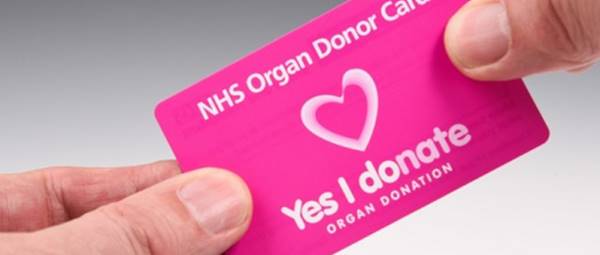European Organ Donation Day: 12th October
An opportunity to thank donors and remind everyone of the importance of organ donation.
The European Directorate for the Quality of Medicines and Healthcare (EDQM) and Council of Europe organises European Organ Donation Day (EODD) every year in a different country. As part of the activities on organ donation and transplantation carried out by the EDQM’s European Committee on Organ Transplantation (the CD-P-TO), EODD contributes to increase organ availability in Europe, as a complement to the work carried out by the Committee on strengthening the effectiveness of transplantation systems and enhancing the quality and safety of organs.
NHS Blood and Transplant, the UK’s national organ donation organisation, hosts the 20th European Organ Donation Day in London and is looking forward to welcoming all delegates from the 47 member countries of the Council of Europe.
Organ donation has, in many ways, become a part of everyday life in many countries and a necessary practice, since it saves and improves so many lives. Over the past few decades the medical community across Europe has witnessed many incredible advances in organ transplantation.
But transplants cannot take place without the act of organ donation. It is with thanks to the brave and selfless donors and their families that transplantation takes place. Their gift of life gives so many a second chance.
All the medical achievements however are only possible if there is significant progress in attitudes towards organ donation. Every country and community is constantly trying to raise awareness about organ donation and transplantation.
At the 20th EODD on 12 October 2019, delegates will hear from experts, transplant recipients and donor families, nurses and clinicians what organ donation and transplantation can achieve especially with the technological advances being made in the field of transplantation.
NHS Blood and Transplant Medical Director, Prof. John Forsythe says: “The UK is the leading country in the world in the technique of performing heart transplant from a DCD (donation after circulatory death) donor and leads innovative technology in other aspects of preservation and perfusion of precious donor organs. It is great that the technology and techniques of life saving organ donation and the fascinating technology of new machines allow a donated organ to be repaired thus facilitating possible transplantation when otherwise this would not happen. This subject is one of the major themes of the EODD.”
But, some parts of our society across Europe are under-represented as donors, particularly black, Asian and minority ethnic communities, whilst it is often people from those backgrounds that have the greatest need.
Chair of NHS Blood and Transplant, Millie Banerjee says; “Increasing donation from these communities will come under the spotlight at this year’s EODD and how we collectively encourage more people to become donors.
Improving donation rates in these groups is possible by working with the communities intelligently and sensitively, so that the message of donation gets across in a clear and unambiguous way.”
Sharing best practice is a very valuable tool when so many countries representatives are gathered together, and we can learn from one another.
More information
- More information about European Organ Donation Day is available on the Council of Europe website, and posters and social media images are available to download.
- The proceedings of the conference were streamed live, and all professionals with an interest in organ donation and transplantation could register to view the sessions on the Council of Europe website.


